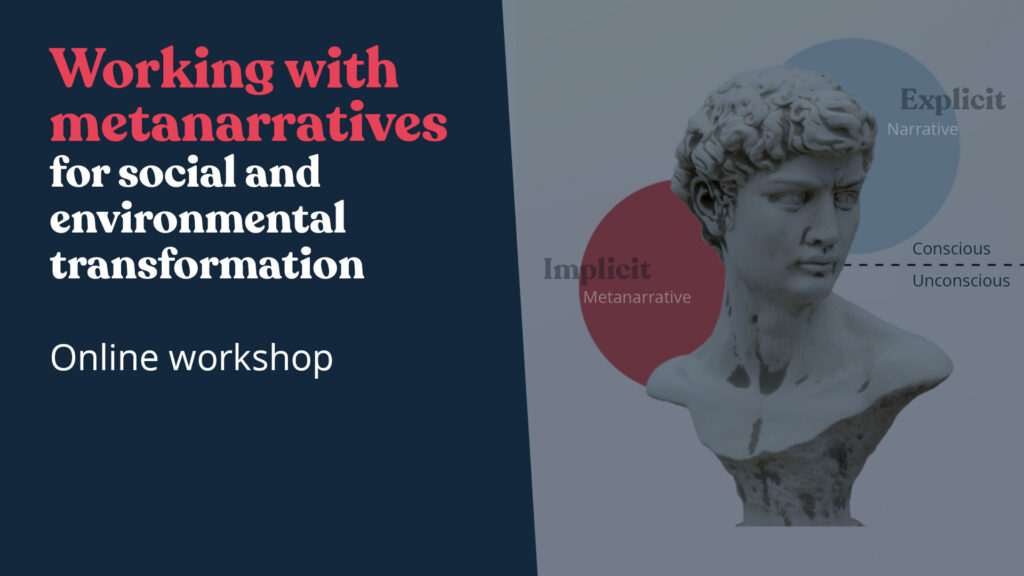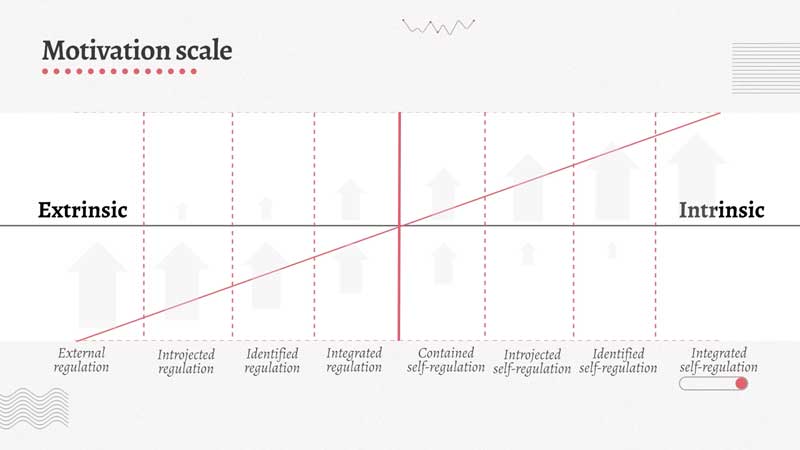
Working with metanarratives
This will be a hands-on workshop where we will explore different metanarratives, understand their nature, and how to craft new metanarratives that can lead to positive change.
You will learn:
- What metanarratives are and how they work
- The role paradigms play in shaping the metanarratives we hold
- Explore the dominant metanarratives that sit behind our fundraising and campaign strategies
- Develop powerful fundraising and campaign propositions using insights from neuropsychology
- Some exciting ideas and new techniques you can use in your fundraising and audience engagement strategies
In this workshop we will be working with a range of toolkits, taken from our Master Storytelling Toolkit, in which we will explore values theory, motivation theory and how to work with intrinsic purpose.
As this training deals with metanarratives, it can be useful for anyone looking to create positive change in the world, whether it is on social or environmental issues.
Those who will especially benefit will be those working on resource production, social media, communications and those in leadership roles.
Every time we tell a story we are communicating on two levels, the narrative (explicit) and the metanarrative (implicit). Thanks to new insights from neuropsychology, we now know that the left hemisphere that holds the language centre specialises in explicit communication (narrative) and the right hemisphere deals with implicit communication.
That means half of our brain is dedicated, full-time, to working with metanarratives.
But we tend not to notice them, and accept the logic and values they present. This can have huge implications for every aspect of our work and our ability to bring about long-term change on the issues we care about.
This offers us an incredible insight into how we actually think, and why metanarratives are so important in helping us to create the motivation for real and meaningful change on some of the biggest issues we face today.
Metanarratives and motivation
This means that every campaign, every fundraiser, every story we tell we are communicating on two levels. And more importantly, when we explore metanarratives we can see that every metanarrative communicates values, motivation and purpose – the three key elements that drive our behaviours.
In this training we will explore what metanarratives are, how they work, and their nature and how to harness them to drive certain values and behaviours.
We will also explore how metanarratives are not only shaped by paradigms but also how we can – unconsciously – further promote some toxic paradigms that can cause some real long-term harm to our world.
Whatever our cause, whether we are working on social or environmental issues, understanding the role metanarratives play in shaping our values and behaviour is essential if we are to bring about long-term and lasting change on the issues we care about.
Next training date: Thursday 10 March, 10:00 – 12:00
Sign up below.
Metanarratives shape everything we do. And yet we act as if they don't exist, accepting their logic and values. The result is that we tend to promote toxic metanarratives that can undermine our cause.
- Kieran O'Brien
Director of Ministory

